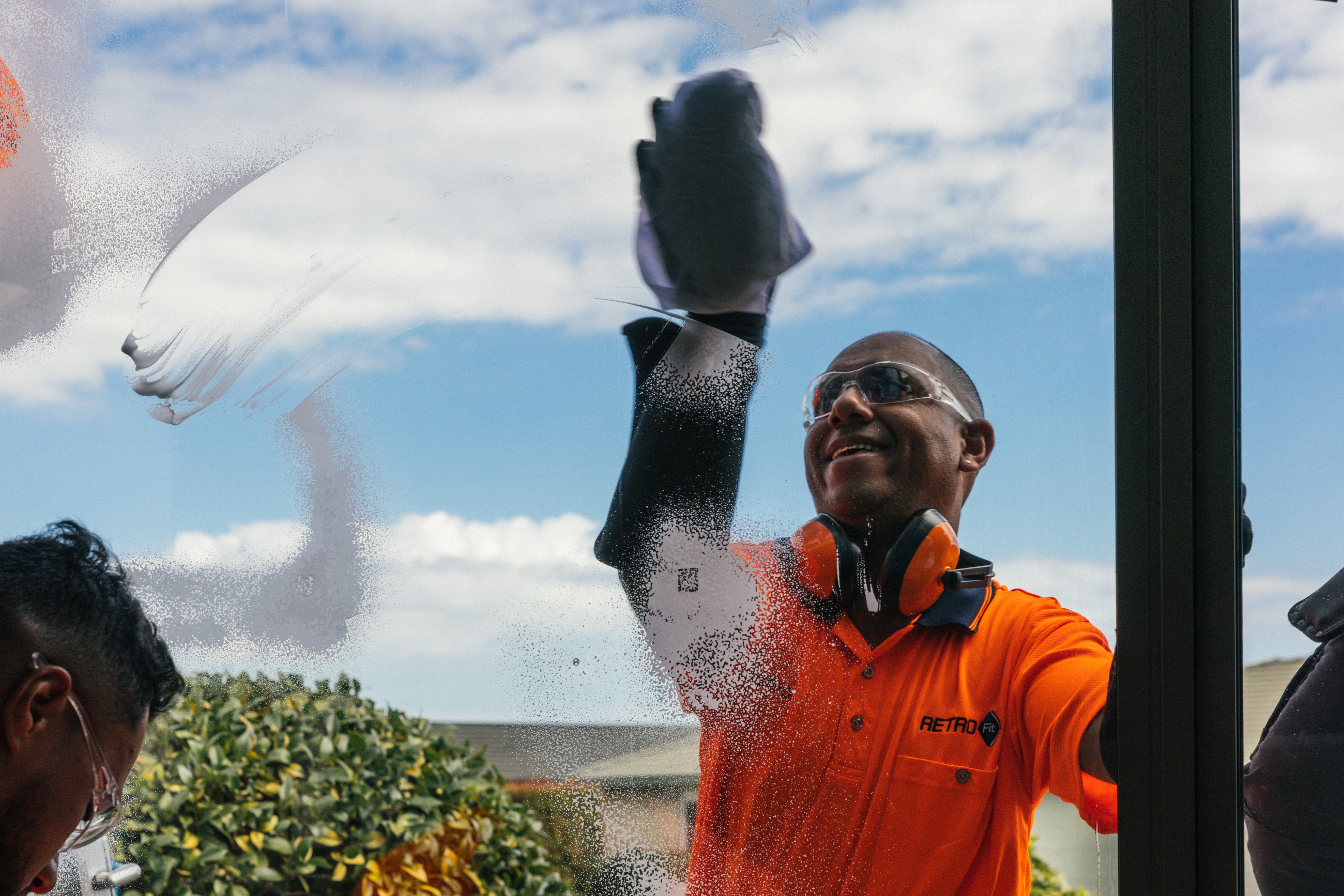Regular care and maintenance will extend the life and looks of your windows and doors. There are some simple things you can do to help retain their appeal for many years to come.
After your retrofit double glazing is completed make sure any debris or dust is cleaned from the inside of the sills to ensure drainage holes are not blocked. This is especially important for sliding and opening doors that may have been retrofitted or in regular use during the installation process.
Cleaning windows and doors once every three months is recommended. In coastal or industrial environments more frequent washing will be required.
We recommend cleaning with a soft sponge or a microfiber cloth with our glass cleaner or some mild household detergent mixed with warm water. Then rinse with fresh water.
Do not use abrasive steel wool, scrapers, scouring liquids or aggressive solvents or thinners. These are likely to damage the surface finish.
The cleaning cycle should include the removal of build-up in door tracks to ensure the maintenance of drainage paths.
Regular maintenance of hardware is recommended.
Powder coated hardware should be cleaned regularly with a wet sponge or soft brush, warm water and a mild detergent and rinsed with fresh water. Plated products should be cleaned with a wet sponge without the use of detergent, as the latter can damage plating.
Stainless steel hardware needs to be cleaned regularly and care needs to be taken when rust spots occur. Even the highest grades of stainless steel can develop rust spots and these can be removed with a mildly abrasive cleaner and rinsed with fresh water. In cases of heavy corrosion, a Scotch-Brite hand pad can be used. Specialised 3M Stainless Steel Cleaner and Polish is also available as an alternative cleaning compound.
Glass is a very delicate product that can be easily damaged.
Care is needed to ensure that scratching does not occur. Only detergents and cleaning solutions that are recommended for glass should be used. Begin cleaning by soaking the glass to loosen dirt. Then using a mild, non-abrasive solution, uniformly apply to the glass surfaces. Ensure that the solution is removed by rinsing with water as cleaning residue can permanently mark glass.
The regular washing and drying of glass and window frames is required to ensure long term durability. In urban areas washing should be every 3 to 6 months.
When washing, soak the glass surface with warm water and mild soap detergent solution to loosen dirt and debris or proprietary glass cleaners. Start cleaning at the top of the building and continue to lower levels.After washing, rinse with clean water and then dry the glass using a clean grit-free squeegee, cloth or paper towel and remember, 'Wet glass is dirty glass.'
All water and cleaning solution residue should be dried from the window gaskets, sealants and frames to prevent water spots.
Avoid cleaning tinted and reflective glass surfaces in direct sunlight.
When washing double glazing and laminated glass use the same procedures as above but ensure no solvents come into contact with the edge laminate interlayer or unit sealant.
It is advisable to check the frame drainage to ensure no water is trapped in the rebate as this can affect the life of these products.
With reflective or Low E coated surfaces exercise special care when cleaning and follow the manufacturer's instructions.
Promotion - FREE upgrade on your retrofit double glazing, plus get 5% discount!
Plus enjoy flexible payment options to make it even easier to upgrade your home. Find out more HERE or 👉 Click here to get your free quote and claim your offer. Use code: FREEUPGRADE26. Terms apply.

